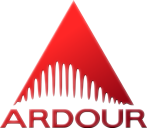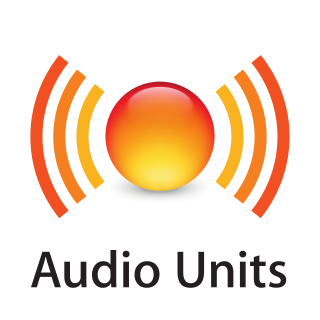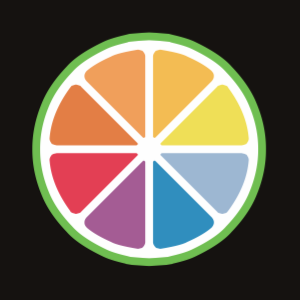
In computing, a plug-in is a software component that extends the functionality of an existing software system without requiring the system to be re-built. A plug-in feature is one way that a system can be customizable.

Ardour is a hard disk recorder and digital audio workstation application that runs on Linux, macOS, FreeBSD and Microsoft Windows. Its primary author is Paul Davis, who was also responsible for the JACK Audio Connection Kit. It is intended as a digital audio workstation suitable for professional use.

Cubase is a digital audio workstation (DAW) developed by Steinberg for music and MIDI recording, arranging and editing. The first version, which was originally only a MIDI sequencer and ran on the Atari ST computer, was released in 1989. Cut-down versions of Cubase are included with almost all Yamaha audio and MIDI hardware, as well as hardware from other manufacturers. These versions can be upgraded to a more advanced version at a discount.
Steinberg Media Technologies GmbH is a German musical software and hardware company based in Hamburg. It develops software for writing, recording, arranging and editing music, most notably Cubase, Nuendo, and Dorico. It also designs audio and MIDI hardware interfaces, controllers, and iOS/Android music apps including Cubasis. Steinberg created several industry standard music technologies including the Virtual Studio Technology (VST) format for plug-ins and the ASIO protocol. Steinberg has been a wholly owned subsidiary of Yamaha since 2005.

Virtual Studio Technology (VST) is an audio plug-in software interface that integrates software synthesizers and effects units into digital audio workstations. VST and similar technologies use digital signal processing to simulate traditional recording studio hardware in software. Thousands of plugins exist, both commercial and freeware, and many audio applications support VST under license from its creator, Steinberg.

Pro Tools is a digital audio workstation (DAW) developed and released by Avid Technology for Microsoft Windows and macOS. It is used for music creation and production, sound for picture and, more generally, sound recording, editing, and mastering processes.

A digital audio workstation is an electronic device or application software used for recording, editing and producing audio files. DAWs come in a wide variety of configurations from a single software program on a laptop, to an integrated stand-alone unit, all the way to a highly complex configuration of numerous components controlled by a central computer. Regardless of configuration, modern DAWs have a central interface that allows the user to alter and mix multiple recordings and tracks into a final produced piece.

Audio Units (AU) are a system-level plug-in architecture provided by Core Audio in Apple's macOS and iOS operating systems. Audio Units are a set of application programming interface (API) services provided by the operating system to generate, process, receive, or otherwise manipulate streams of audio in near-real-time with minimal latency. It may be thought of as Apple's architectural equivalent to another popular plug-in format, Steinberg's Virtual Studio Technology (VST).
Reaktor is a graphical modular software music studio developed by Native Instruments (NI). It allows musicians and sound specialists to design and build their own instruments, samplers, effects and sound design tools. It is supplied with many ready-to-use instruments and effects. In addition, free instruments can be downloaded from the User Library. All of Reaktor's instruments can be freely examined, customized, or taken apart, encouraging reverse engineering. The free, limited version called Reaktor Player allows musicians to play NI-released Reaktor instruments, but not edit or reverse-engineer them.
Avid Audio is an American digital audio technology company. It was founded in 1984 by Peter Gotcher and Evan Brooks. The company began as a project to raise money for the founders' band, selling EPROM chips for drum machines. It is a subsidiary of Avid Technology, and during 2010 the Digidesign brand was phased out. Avid Audio products will continue to be produced and will now carry the Avid brand name.

Prosoniq Products Software was a German software developer of audio and music tools, mostly known for their sonicWORX, OrangeVocoder, TimeFactory and Hartmann Neuron synthesizer products. It also licensed proprietary technologies in the audio/music DSP sector to software manufacturers including Emagic, Steinberg, Digidesign, TwelveTone Systems, Merging, DAVID, AutoDesk/Discreet and others. Headquartered in Karlsruhe, Germany, Prosoniq pioneered the use of artificial neural networks for commercial audio processing.
VENUE is a brand of live sound digital mixing consoles introduced by Digidesign in February 2005. The family now includes 5 different consoles and a number of ways they can be configured. They can all be connected to Pro Tools, the audio editing software also created by Avid/Digidesign, to provide recording and 'Virtual Soundcheck' facilities. One of the system's key marketing points is its use of the same AAX DSP/TDM plugins as Pro Tools, an industry standard digital audio workstation (DAW). This is designed to enable the sounds recorded by the artist in the studio to be easily recreated on stage, and to allow for greater flexibility in signal processing without heavy and mechanical-shock-sensitive racks of external processors. There is also a PC-based offline editor for creation and editing of show files, although there is no audio processing in the editor.

BIAS was a privately held corporation based in Petaluma, California. It ceased all business operations as of June, 2012.

TC Electronic is a Danish audio equipment company that designs and imports guitar effects, bass amplification, computer audio interfaces, audio plug-in software, live sound equalisers, studio and post-production equipment, studio effect processors, and broadcast loudness processors and meters. In August 2015, the company was purchased by Music Group, a holding company chaired by Uli Behringer.

iZotope, Inc. is an audio technology company based in Cambridge, Massachusetts, United States. iZotope develops professional audio software for audio recording, mixing, broadcast, sound design, and mastering which can be used in wide range of digital audio workstation (DAW) programs. In addition, iZotope creates and licenses audio DSP technology including noise reduction, sample rate conversion, dithering, time stretching, and audio enhancement to hardware and software companies in the consumer and pro audio industries.

JUCE is an open-source cross-platform C++ application framework, used for the development of desktop and mobile applications. JUCE is used in particular for its GUI and plug-ins libraries. It is dual licensed under the GPLv3 and a commercial license.
Harmonically Enhanced Digital Audio (HEDA) is a class of digital recordings created by using modern digital harmonic enhancement technology. With the proliferation of harmonic enhancement algorithms, pioneered by Crane Song's Dave Hill, a new class of harmonic enhancement algorithms have emerged.

Audio Random Access is an extension for audio plug-in interfaces, such as AU, VST and RTAS, allowing them to exchange a greater amount of audio information with digital audio workstation (DAW) software. It was developed in a collaboration between Celemony Software and PreSonus.

CLever Audio Plug-in or CLAP is an open source software architecture, application programming interface and reference implementation suite for audio effect plugins as used in multimedia software such as digital audio workstations, audio editing software, and video editing software with integrated audio workflows. The specification and reference implementation was released in 2022 by the Berlin-based audio software companies u-he and Bitwig.











